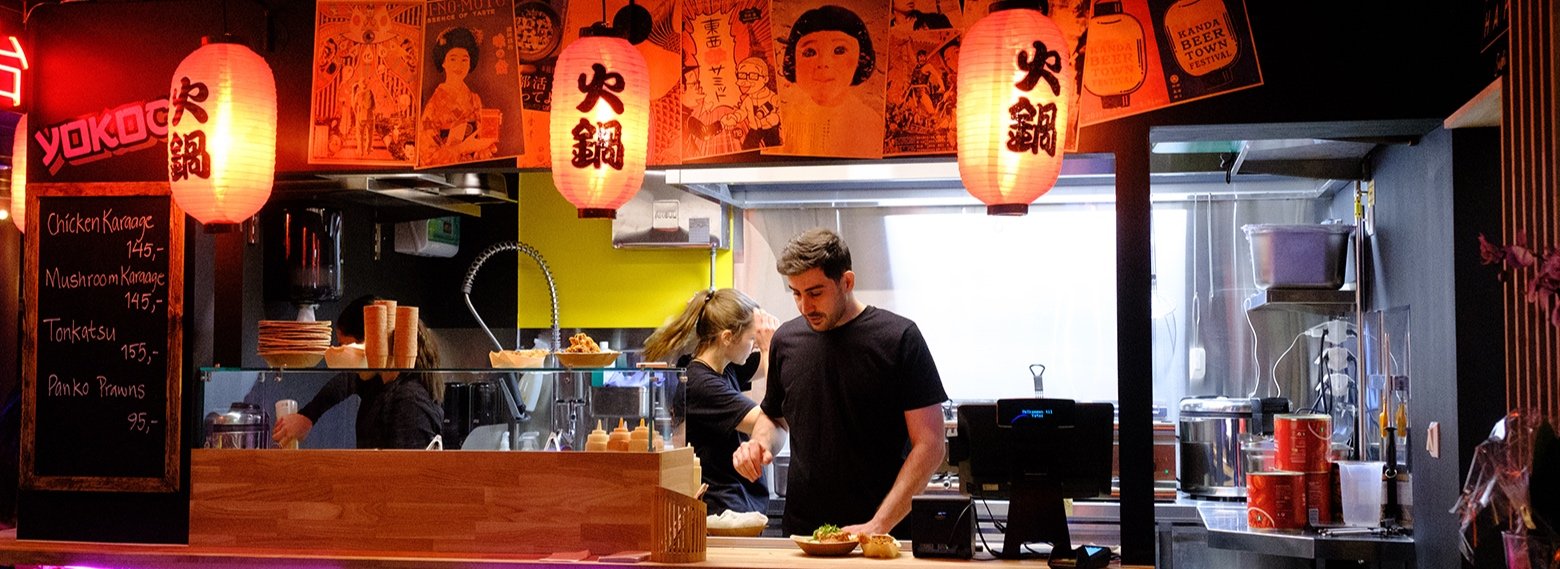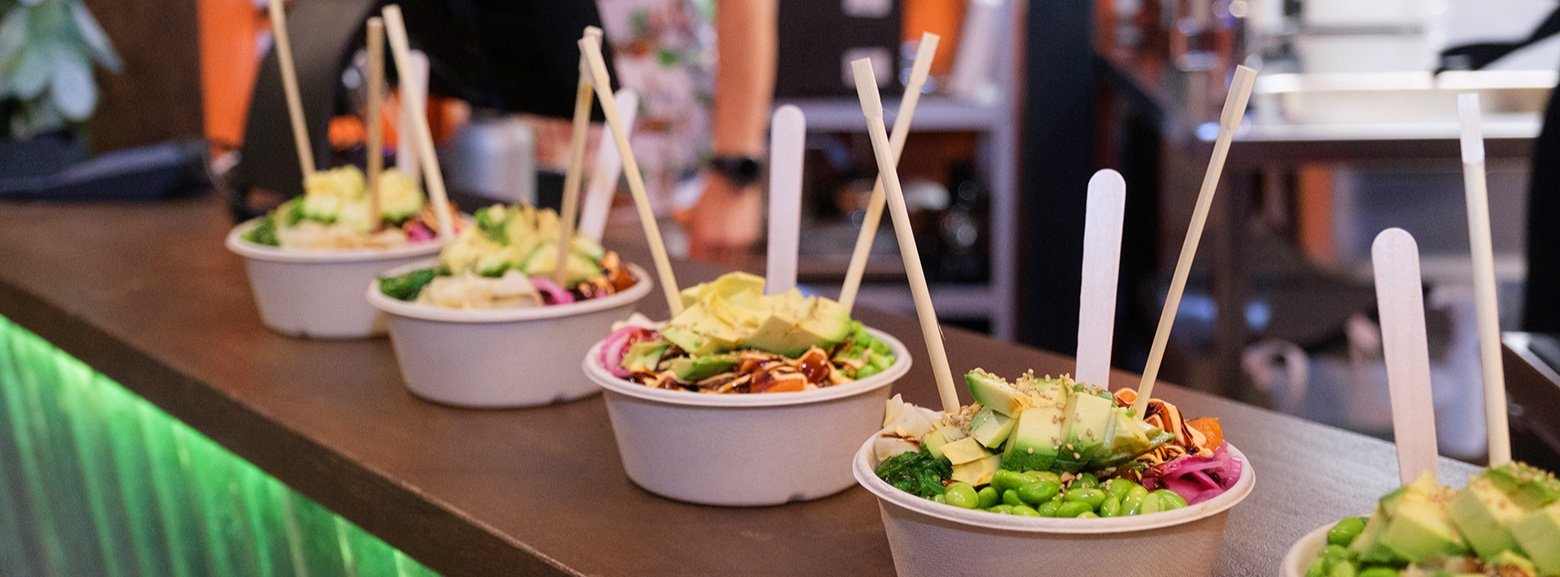REPORT ON THE WORK WITH THE TRANSPARENCY ACT BARCODE STREET FOOD AS
1. INTRODUCTION
Act of 18 June 2021 No. 99 on businesses' work with fundamental human rights and decent working conditions (the Transparency Act) entered into force on 1 July 2022. The purpose of the Act is to promote businesses' respect for fundamental human rights and decent working conditions in connection with the production of goods and the provision of services, and to ensure public access to information about how businesses handle negative consequences for fundamental human rights and decent working conditions, cf. Section 1.
Before Barcode Street Food Ltd. ( Barcode Street Food /the company) it is important to comply with our social responsibility under the law by ensuring transparency and providing information about negative impacts the business, supply chain and business partners have on human rights and decent working conditions. Barcode Street Food will ensure that the legal requirements are implemented in the company's policies and procedures at all times.
2. ABOUT THE REPORT
The following will explain the company's work with the Transparency Act, including risk assessments of its own operations, the supply chain and business relationships for the calendar year 2024.
Barcode Street Food is covered by the scope of the Transparency Act as the company constitutes a major enterprise, cf. Section 2, first paragraph, cf. Section 3, first paragraph, letter a.
3. BRIEFLY ABOUT BARCODE STREET FOOD
3.1. Organization
Barcode Street Food , corporate registration number 927 600 218, is organized as a limited liability company. The company is part of a group with a total of four companies.
The company's parent company is Food Court Holding AS, company no. 928 071 804. The parent company owns 100% of the shares. In addition, Lawi Holding AS, company no. 820 213 432, and Grosvold Boat Production Management AS, company no. 918 127 674, each own 3.467% of the shares.
The parent company is owned by Lawi Holding AS and Cgw Holding AS, corporate registration number 920 355 943. Lawi Holding AS is wholly owned by Wilhelm Naustdal Larsen, while Cgw Holding AS is wholly owned by Christian Grosvold.
3.2. Operating area
Barcode Street Food is a food hall with a large selection of restaurants from different parts of the world. The restaurants open at 11:00 Monday to Saturday, and 12:00 on Sundays. On weekdays and Saturdays, the restaurants close at 22:00. On Sundays, the restaurants close at 21:00.
Barcode Street Food does not operate the restaurants themselves, but rents out premises to the restaurants, which have their own employees. The routines include checking that the restaurants have decent working conditions for their employees.
Barcode Street Food operates four bars in the venue, including a cocktail bar and a coffee bar. The company also offers outdoor seating and is responsible for operating the nightclub itself.
Through its restaurants, the company also offers catering, as well as supplies products and services that naturally coincide with the rest of the business. Such services and products include, among other things, participating in other companies with similar activities, buying and selling shares, or otherwise becoming interested in other enterprises.
By the way, it says Barcode Street Food for a variety of events all year round. The company's regular program includes, among other things, a clothing market and stand-up, as well as DJ -events and other seasonal events.
4. OUR GUIDELINES AND PROCEDURES
Barcode Street Food has a strong focus on sustainability and social responsibility. The restaurants use local food and recyclable materials, and the company strives to reduce waste and energy use.
Barcode Street Food wants to ensure an ethical working environment for everyone involved in the company's operations, be it its own employees, restaurant employees and employees of suppliers and business partners.
The company has developed guidelines and routines to control and identify deviations from the above-mentioned goals.
The company's employees have normal pay and working conditions. The Working Environment Act's requirements for working hours, written employment contracts, permanent employment, etc. are complied with.
The working conditions of the restaurant employees are monitored through dialogue with the owners. In addition, regular inspections are carried out. Any negative deviations will be followed up with further investigations and dialogue with the businesses.
The working conditions of suppliers and business partners are monitored through letters to the various actors, where they are asked to answer a series of questions that are suitable for revealing deviations. If a risk of negative consequences for fundamental human rights and decent working conditions is revealed, the company will take measures to correct, stop and/or reduce the negative impact. If it is not possible to reduce the negative impact, the company will terminate its cooperation with the supplier or business partner in question.
5. RISK INFORMATION
5.1. Barcode Street Food's work with due diligence assessments
Before Barcode Street Food was covered by the Transparency Act on 1 January 2024, the company updated its governing documents and prepared a plan for compliance. This was embedded in the management. In working with the Transparency Act, the company has based itself on the OECD's due diligence guidelines for responsible business.
The due diligence assessments have been carried out in accordance with Section 4 of the Transparency Act with the assistance of a lawyer.
The company has not yet found it necessary to visit suppliers or business partners, cf. below on risk. To the extent that a real risk of violations of fundamental human rights and decent working conditions at suppliers or business partners is identified, inspections will be carried out. The restaurant businesses are in ongoing dialogue with and have good visibility into.
5.2. Summary of risks and measures
5.2.1. Supply chain - purchasing
As the restaurants use local food, the risk of violations of basic human rights and decent working conditions at the food supplier is considered low. The company monitors that the restaurants it leases and collaborates with have decent working conditions.
Beverages are purchased from major distributors who have themselves conducted risk assessments in accordance with the Transparency Act. It is therefore assumed that the risk of violations by beverage suppliers is low.
5.2.2. Other business partners
The company's business partners are the landlords of the premises where the company operates, businesses that offer cleaning services and the restaurants that rent premises in Barcode Street Food .
The landlord has conducted its own risk assessments. The landlord also has few employees. It is therefore assumed that the risk of a breach by the landlord is low.
The landlord is responsible for the renovation of the premises. The company has obtained confirmation from the landlord that the performing craftsmen have decent working conditions.
Cleaning services are purchased from Norwegian companies. In general, the risk of breaches at Norwegian companies can be assumed to be lower than at foreign companies. In addition, cleaning services are purchased from companies that have themselves conducted risk assessments. The risk of breaches is therefore assumed to be low.
The company has conducted a risk assessment of whether the employees in the restaurants have decent working conditions, especially with regard to working hours and pay. The employees have normal pay and working conditions.
6. FURTHER WORK
Barcode Street Food is continuously working to improve the processes related to safeguarding fundamental human rights and decent working conditions in its own operations, the supply chain and with business partners. In our further work with the Transparency Act, we will facilitate a comprehensive and integrated process where due diligence assessments are carried out regularly and coordinated together with related assessments in its own operations and by third parties. Barcode Street Food will implement this so that fundamental human rights and decent working conditions are given priority and are continuously safeguarded.
To uncover potential negative consequences for fundamental human rights and decent working conditions, Barcode Street Food Continue regular follow-up of suppliers and business partners, and continuously assess whether there is a need to conduct visits and/or risk-based audits.
If Barcode Street Food If negative consequences for fundamental human rights and decent working conditions are discovered, specific assessments will be carried out and adequate and proportionate measures will be taken to stop and/or limit the negative consequences. This applies regardless of the legal implications such measures may entail and whether the situation actually represents a violation of the law.
To reduce the risk of negative impacts on fundamental human rights and decent working conditions, we will continue to explore opportunities to increase our influence with suppliers and business partners.






